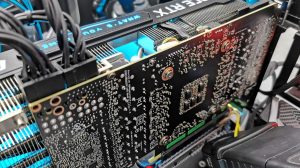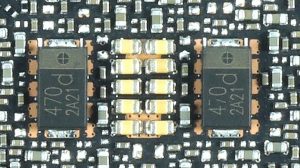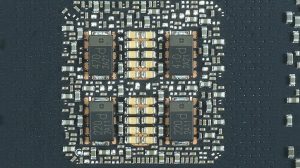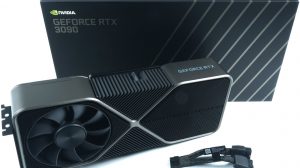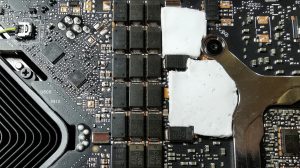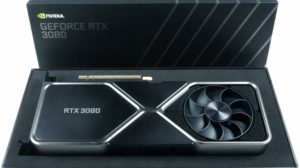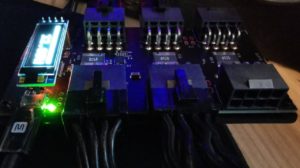With the revision 456.55 NVIDIA wants to fix most of the problems of the new GeForce RTX 3080 and RTX 3090 and solved it. In addition to the power supply shutdowns that repeatedly occurred at the beginning with power supplies that seemed to be nominally sufficient, it was mainly the crashes of certain cards within the 3D environment that caused a [...]
Search Results For - GPU
After my article about the capacitors on the GeForce RTX 3080 and RTX 3090 has made a lot of waves, I have to criticize myself in two respects. I had underestimated that the readers might be interested in a somewhat longer and more technical explanation of the circumstances or background and that secondly, the (thoughtless) adoption of the terms [...]
Not only the editors and testers were surprised by sudden instabilities of the new GeForce RTX 3080 and RTX 3090, but also the first customers who were able to get board partner cards from the first wave. An interesting pattern of behavior emerged that did not affect all cards or manufacturers and the problems only occurred at certain boost clock [...]
With the GeForce RTX 3090, NVIDIA is rounding out its graphics card portfolio at the top end today, for now. Much more is not possible with the GA102-300 anyway and so one may see the current expansion as a replacement for the Titan RTX rather than the RTX 2080 Ti. An upcoming “Quadro RTX A” should then also be able to get all shaders [...]
I had recently already measured it in the article “GDDR6X at the limit? Over 100 degrees measured inside of the chip with the GeForce RTX 3080 FE!” and noted, that in extreme cases temperatures of over 110 °C were reached during mining or with Furmark, which of course falls into the more questionable range. It’s interesting that [...]
The long awaited day has arrived and yes, there is a lot to report. Of course there are tests for 10 games in two resolutions and 17 tests for workstation applications and studio apps – that will be a lot of output for me and tons of input for you. I had threatened you weeks ago a hot autumn, which has now arrived and I promise you on the [...]
NVIDIA has recently introduced the GeForce RTX 30 series with an Ampere-based chip for home users, and is expected to launch its prosumer and workstation-oriented Quadro RTX graphics cards in the Ampere-based range soon. The NVIDIA Quadro RTX series started in 2018 with the Turing GPUs ahead of the consumer cards of the time and will soon move to [...]
Who doesn’t remember the good times when you beat an Intel quad-core Q6600 with G0 stepping, preferably at a DFI Lanparty with X38 chipset, towards the 4 GHz? Back then, Intel’s binning was quite easy. The good chips from the middle of the wafer, if it was a good wafer, got the highest VID and still ran the coolest. Those were the [...]
Just before the launch of Ampere, NVIDIA is quickly unleashing two tools that can make life easier for reviewers and technology enthusiasts. In today’s article “NVIDIA LDAT – Latency Display Analysis Tool Introduced and Quite Exclusively Tested” you will learn everything about latencies and their origin, as well as how to [...]
The fact that you generally use the FPS, i.e. the rendered frames per second, as a benchmark for the gaming performance, is common but actually anything but target-oriented. If you know my metrics in the graphics card tests, you will have noticed that for some years now, I have been using the frame time, i.e. the real render time of each [...]













